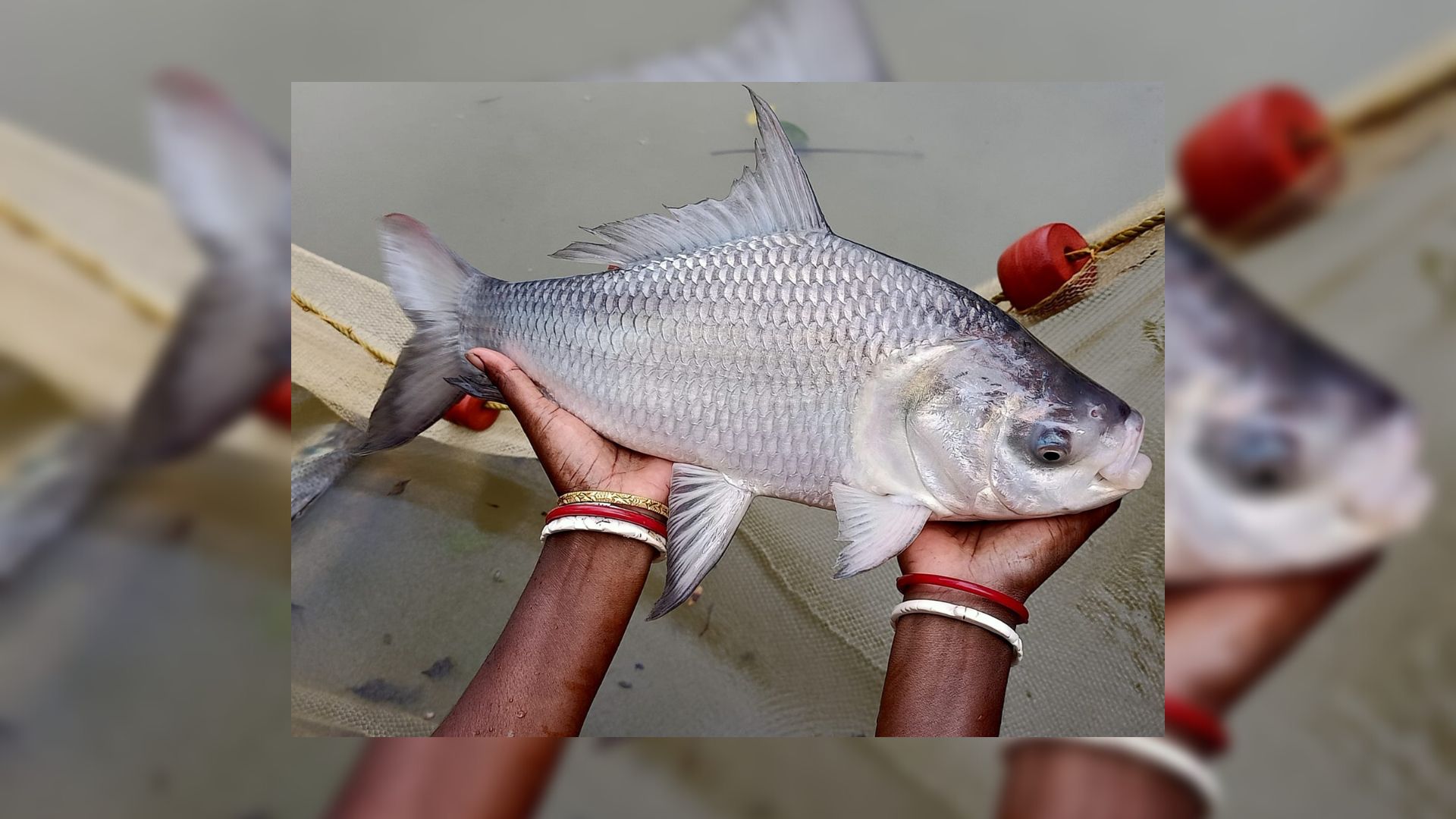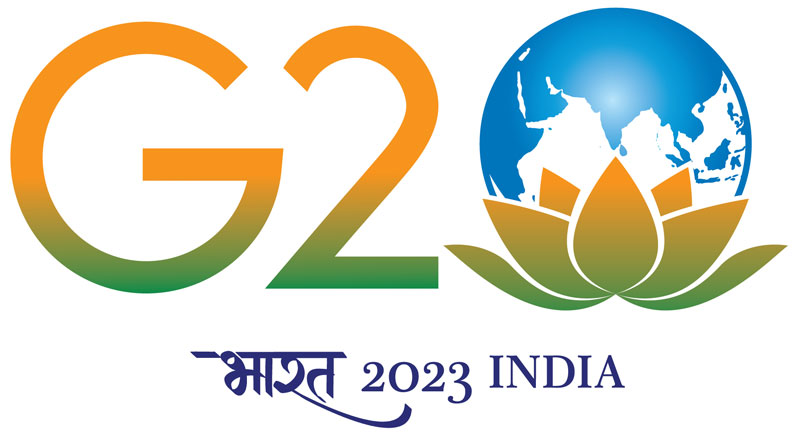Report by: Barni Chatterjee, Usharmukti Project Executive, PRADAN
Edited by: BRLF Communication Team
In the heart of the Jungle Mahal region, a land characterized by dryness, forest fringes, and water scarcity, a beacon of hope has emerged for small and marginal farmers. Over the past 4-5 years, approximately 40,000 Water Harvesting Structures (WHSs) were constructed in this region under the Usharmukti Project in collaboration with various government programs, including the Mahatma Gandhi National Rural Employment Guarantee Scheme (MGNREGS). These structures have brought about positive changes, garnering appreciation from the local community and stakeholders. Now, there lies an opportunity to capitalize on these structures and transform them into catalysts for economic prosperity and environmental sustainability through commercial pisciculture.
The Usharmukti Plus project, a BRLF initiative, seeks to establish a self-reliant farming system model for production cluster development, generating sustainable livelihoods for approximately 2.89 lakh households in the region.
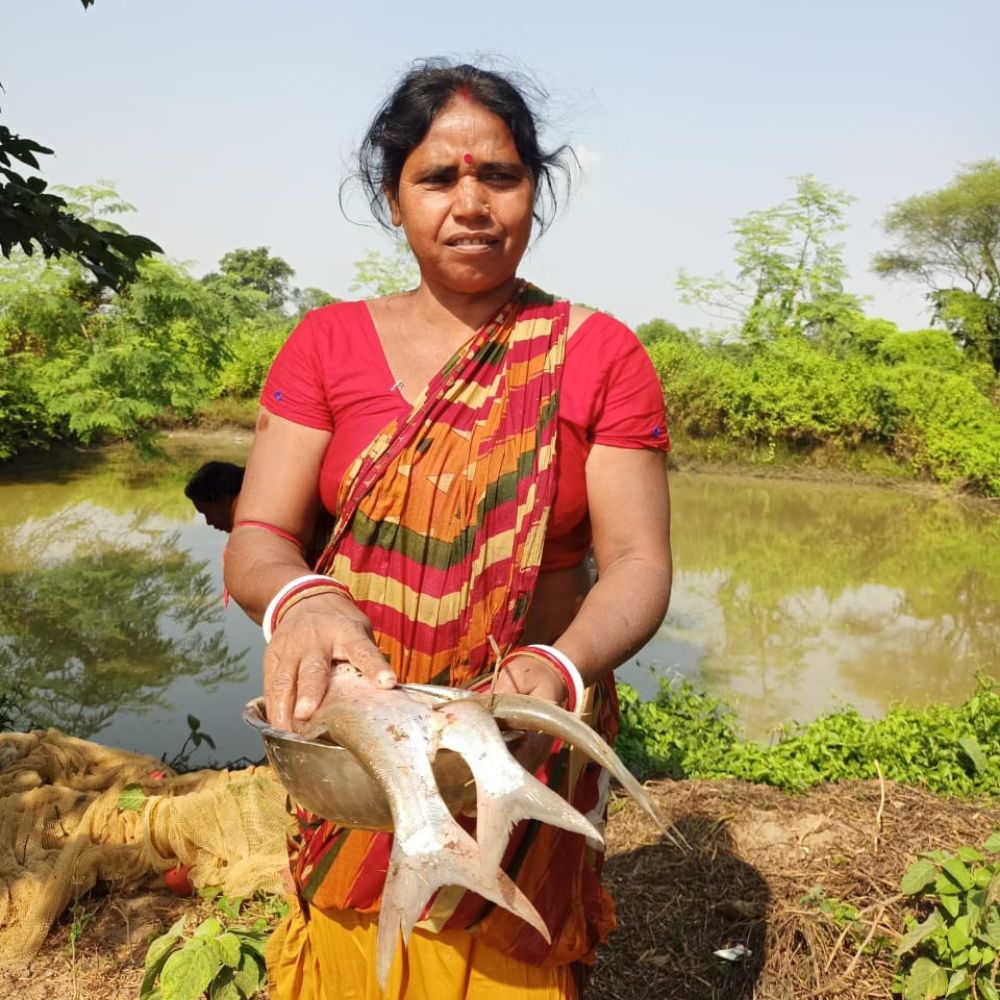
Commercial Pisciculture - a viable livelihood opportunity
The introduction of commercial pisciculture promises to address the challenges of local communities. The first and foremost benefit is the improved nutrition status in poor rural households. Domestic fish consumption, including highly nutritious small fishes like Punti and Mourala, can be enhanced with IMC polyculture. Furthermore, native fishes such as Chyang, Magur, and Singhi can be cultivated alongside these small fishes, requiring minimal additional investment. Snails, abundant in old ponds, also provide a highly nutritious food source.
Beyond improving nutrition, commercial pisciculture offers employment opportunities for landless, vulnerable, and marginal households along the entire value chain. By engaging in activities like feed making, hatcheries, nurseries, brooder ponds netting, and fish sales, these households can find meaningful work and reduce the need for distress migration. The involvement of youth and women in these activities helps empower marginalized communities and contribute to their economic well-being.
Comparatively, commercial pisciculture is a remunerative alternative to traditional paddy cultivation, offering 6-8 times higher returns from the same amount of land in the western part of West Bengal. Additionally, its ecological sustainability must be considered. Ponds for pisciculture hold rainwater, promoting groundwater recharge through percolation and supporting freshwater aquaculture. By employing regenerative methods without relying on chemical components, this approach ensures a healthier environment for all.
Proposed Interventions under Usharmukti Plus Project
To turn this opportunity into reality, several interventions have been proposed. The region’s potential for commercial pisciculture has been recognized, with over 20,000 functional water bodies covering approximately 810 hectares. It is crucial to leverage these structures optimally for the engagement of small and marginal farmers. Furthermore, establishing Farmers’ Producer Organizations (FPOs) will allow around 1,000 farmers per block to join forces and benefit collectively.
The proposed prototype entails developing commercial pisciculture as a sector, boosting the local economy, and improving nutrition and employment in a seed-to-sale model. Indian Major Carps (IMC), including Catla, Rohu, and Mrigal, are ideally suited for the region and have a consistent market demand. An FPO or Producers’ Collective will be established to unite commercial fish rearers under a common umbrella.
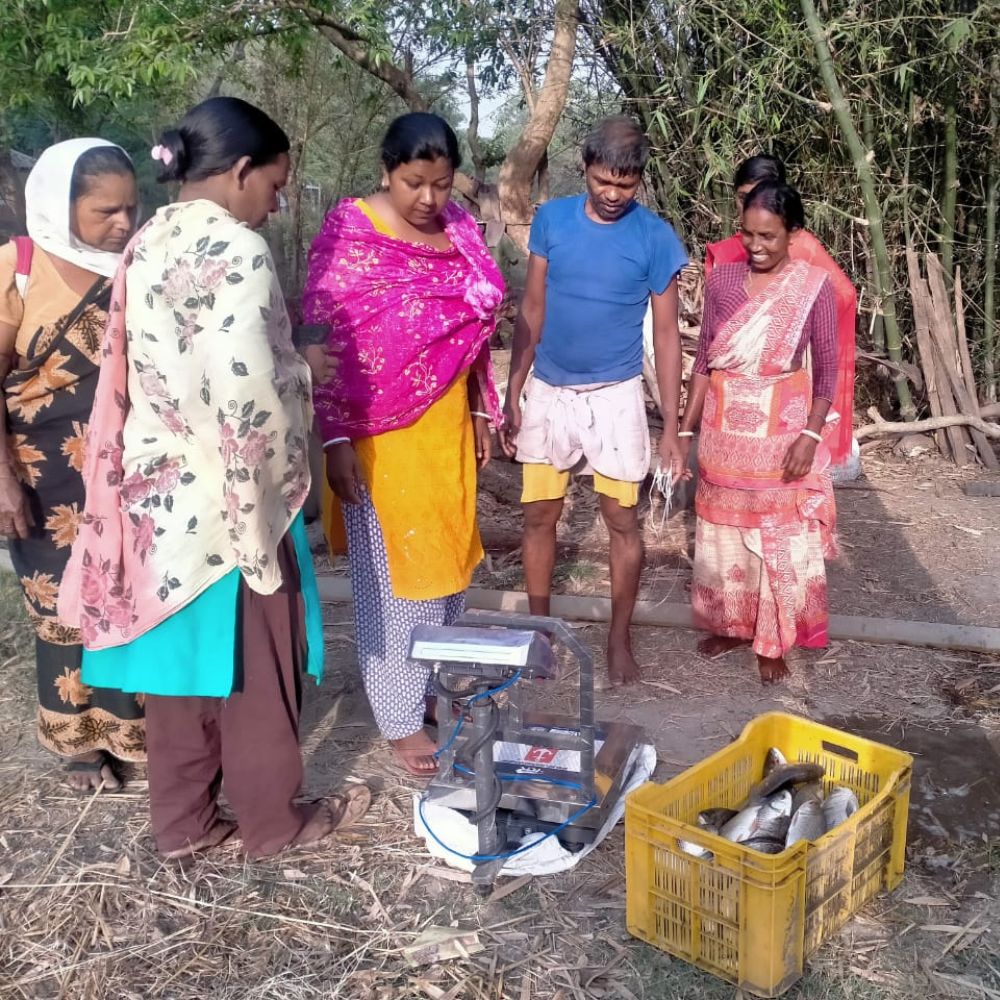
Intervention in Binpur I block of Jhargram district
The intervention in the Binpur I block of Jhargram District provides an insight into the transformative potential of commercial pisciculture. In this area, 1,413 farmers are rearing table fish, with 16 nurseries supporting their operations. Last year, the aggregated marketing efforts resulted in the sale of 5 quintals of table fish over three months. These numbers demonstrate the initial success of the intervention and signify the immense possibilities for growth and prosperity in the future.
To ensure the success of this initiative, collaboration with various departments and institutions is essential. Convergence with programs such as MGNREGS, West Bengal Accelerated Development of Minor Irrigation Project (WBADMIP), and departments focusing on soil moisture conservation and forestry will facilitate asset creation. Partnerships with the Fishery Department will enable small and marginal farmers to access schemes related to hatcheries, vending vehicles, cold storage, ice-packing, and credit. Technical knowledge and expertise will be sought through collaboration with research, academic institutions, and individuals experienced in the field.
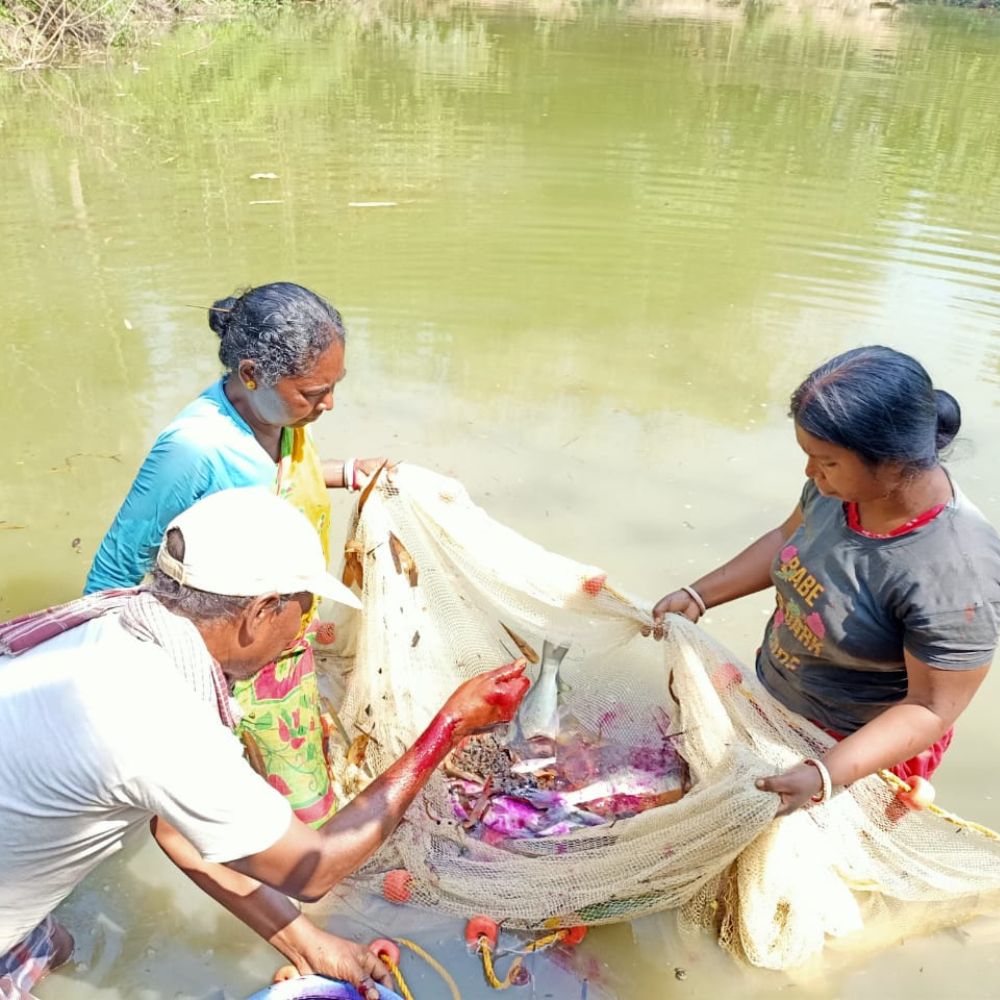
Disease Control
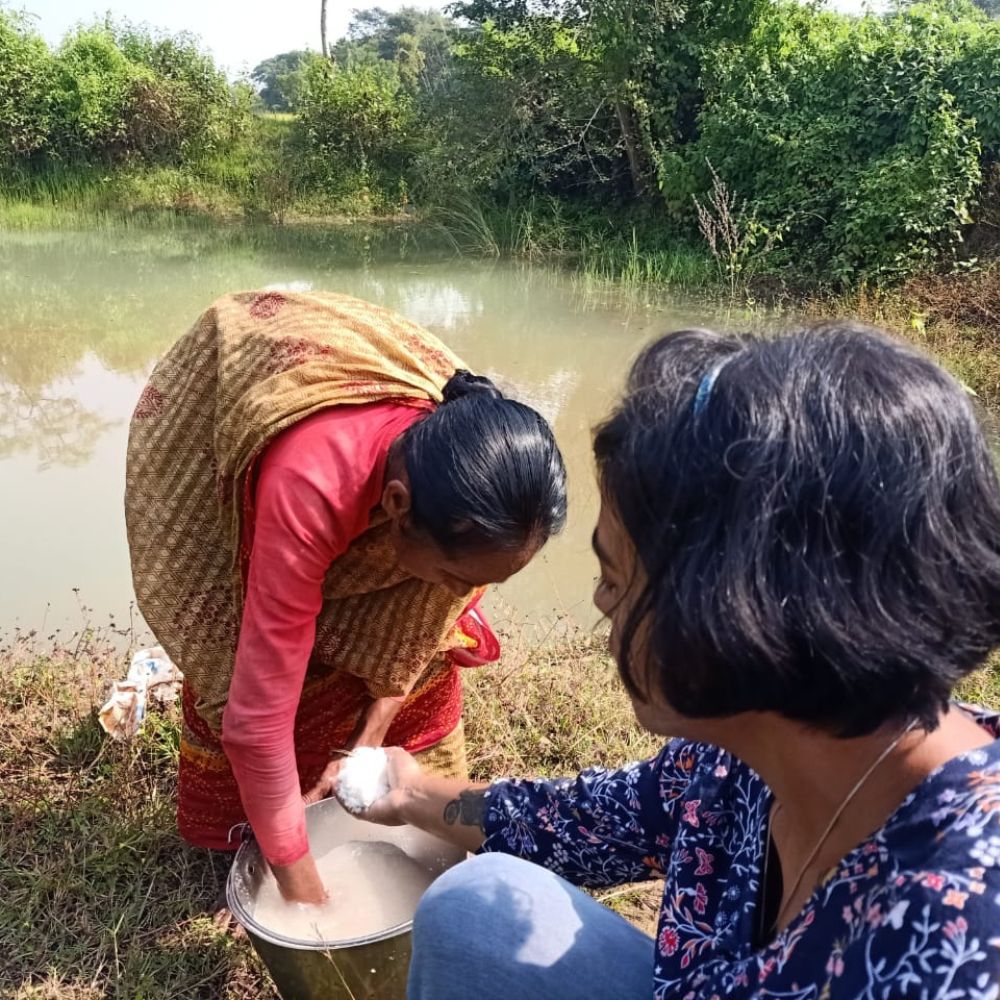
Salt Application
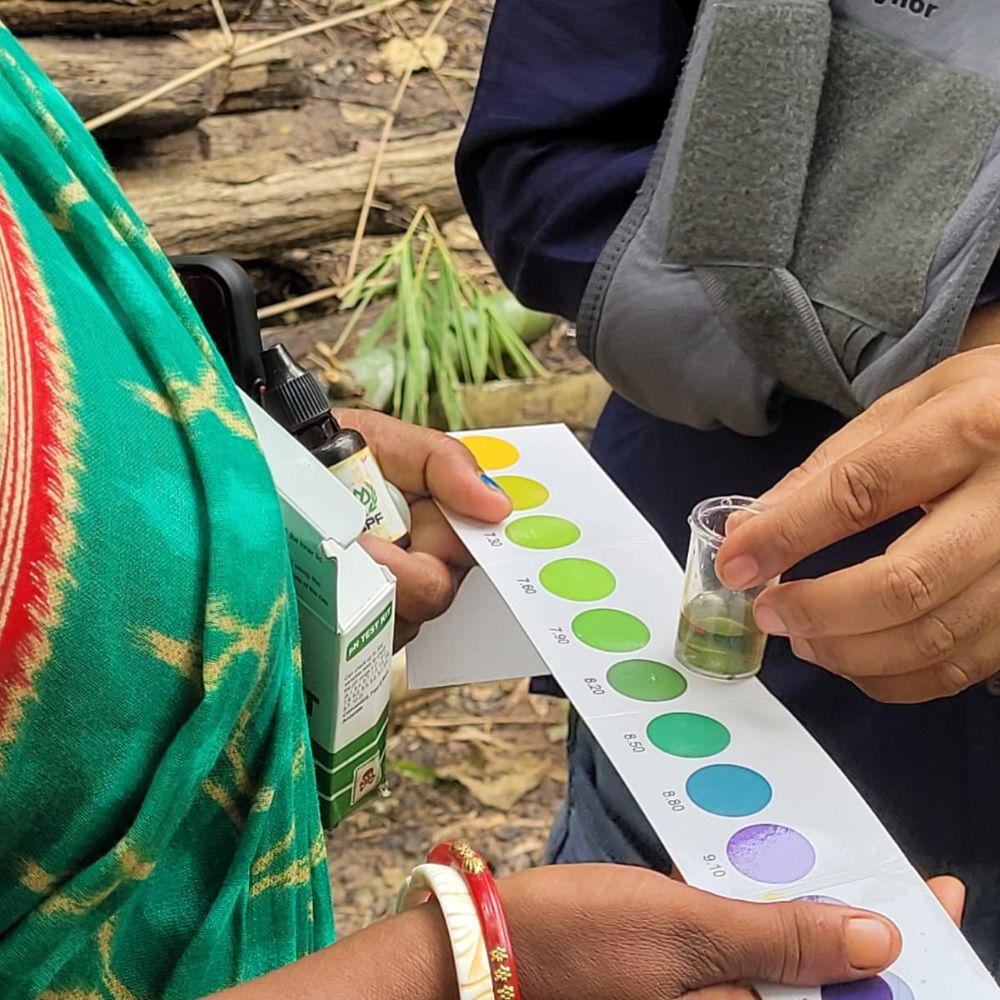
Ph Testing
The journey towards economic prosperity and environmental sustainability through commercial pisciculture has just begun. By leveraging the potential of the Jungle Mahal region, empowering marginalized communities, and embracing regenerative practices, we can foster a brighter future for small and marginal farmers.
